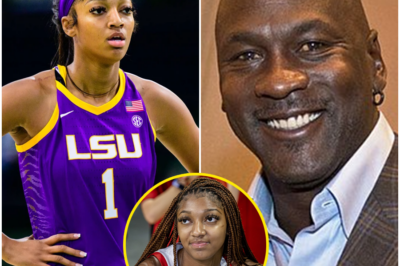Shocking End to Catchings’ Career as Fever Players Kneel During Anthem Protest—What This Means for the Future of Women’s Sports and Social Justice!

In a dramatic and poignant moment, WNBA legend Tamika Catchings announced the end of her illustrious career while her team, the Indiana Fever, made a bold and powerful statement by kneeling during the national anthem. The timing of these events has shocked both fans and the sports community, especially as it combines Catchings’ retirement with a highly charged political protest by her teammates. This rare moment of sports and activism colliding has sparked a wave of conversation about the intersection of women’s athletics, political statements, and the legacy of athletes using their platforms to advocate for social change.
The End of an Era: Tamika Catchings Retires
Tamika Catchings, one of the most respected figures in women’s basketball, officially announced her retirement from professional basketball, bringing an end to a remarkable career. Catchings has been a star in the WNBA for over 15 years, earning numerous accolades including a WNBA Championship, MVP awards, and 4 Olympic gold medals. Her retirement marks the conclusion of an era not just for the Fever but for the WNBA itself.
“It’s been an incredible journey,” Catchings said emotionally during her farewell announcement. “Basketball has given me everything I could have dreamed of. I’m proud of what I’ve accomplished, but it’s time for me to step away and allow the next generation to take their place.”
For fans, Catchings’ departure is bittersweet. Her leadership both on and off the court has been pivotal in shaping the identity of the WNBA, and her legacy as a player will continue to inspire for years to come. “Tamika is a role model for so many of us,” said one fan. “Her passion for the game, her dedication to social justice, and her leadership will never be forgotten.”
Fever Players Kneel During Anthem: A Bold Political Statement
The shock didn’t end with Catchings’ retirement announcement. In a dramatic show of solidarity with the social justice movements that have been sweeping the country, several of Catchings’ teammates on the Indiana Fever took a knee during the national anthem ahead of their game. This move was a clear statement of protest against systemic racism, police brutality, and inequality.
The decision to kneel during the anthem was a symbolic gesture that mirrored similar protests seen in professional sports leagues like the NFL and NBA. The players’ act of defiance was a bold move in the world of women’s sports, where protests and activism have been gaining momentum. “We stand for justice and equality, and we won’t remain silent,” one Fever player said after the game. “We are using our platform to raise awareness for the issues that affect our communities.”
The protest quickly went viral, sparking intense debates about the role of athletes in social movements. Fans on social media were divided, with some praising the Fever players for their courage while others criticized them for bringing politics into sports. “Respect the anthem, respect the country,” one commenter posted. “It’s not the time or place to make a political statement.”
However, others applauded the players for standing up for what they believe in. “This is exactly what sports should be about—using your voice to make a difference,” one supporter tweeted. “The Fever players have earned my respect.”
What This Means for Women’s Sports and Social Justice
The combination of Tamika Catchings’ retirement and the Fever players’ anthem protest has brought the conversation about activism in sports to the forefront once again. Women’s sports, particularly basketball, have long been at the intersection of advocacy and competition, with athletes like Catchings and her teammates continuing to use their platforms to promote change.
“The WNBA has always been a league that encourages activism and social consciousness,” said one sports journalist. “What’s happening here is a continuation of that tradition, but the way it’s being received is different. The debate over the role of politics in sports is heating up, and it’s clear that women athletes are taking a stand.”
For the Fever, the act of kneeling was more than just a political statement—it was a moment of unity and solidarity within the team. It was also a statement that the fight for racial equality and justice transcends the playing field, and athletes in every sport have the power to influence public opinion and drive change.
A Look at the Future of the WNBA and Activism in Sports
As women’s sports continue to gain visibility and recognition, the conversation about activism and the role athletes play in shaping the social landscape will only continue to grow. The WNBA, in particular, has been a leader in fostering this type of advocacy, and the decisions made by athletes like Tamika Catchings and her fellow Fever players are just one example of how the league is evolving.
“I think we’re going to see even more athletes stepping up and using their platforms in ways we’ve never seen before,” said a former WNBA player. “It’s not just about sports anymore. It’s about making a statement that resonates beyond the game.”
For now, the Indiana Fever’s anthem protest and Catchings’ emotional farewell serve as a poignant reminder of the power of sports to create meaningful change. The conversation around race, equality, and justice is far from over, and the influence of these athletes will undoubtedly continue to inspire and push for a better future.
Conclusion: A Legacy of Leadership and Advocacy
Tamika Catchings’ retirement and the WNBA players’ bold protest during the anthem have set the stage for a new chapter in the world of women’s sports. Catchings’ legacy as a champion on the court will live on, while the protest by the Fever players has cemented their place in the ongoing conversation about social justice. The two events, though different in nature, are interconnected by the commitment to making a difference and challenging the status quo.
As the WNBA moves forward, its athletes will continue to use their voices and actions to inspire, advocating for a world where fairness and equality are at the forefront of every conversation. The fight for social change may have started on the court, but its impact is far-reaching, and its legacy will endure long after the final buzzer.
News
BREAKING: Basketball Legend Michael Jordan Criticizes Angel Reese, Claiming She Lacks Real Skills and Focuses on Flaunting Sexy Photos Online Instead of Improving Her Game! Fans Are Stunned by Jordan’s Public Remarks—What Sparked This Controversial Critique, and How Is Angel Reese Responding? Get the Full Scoop on the Shocking Statement from the Basketball Icon and What This Means for Angel Reese’s Career Moving Forward!
BREAKING: Basketball Legend Michael Jordan Criticizes Angel Reese, Claiming She Lacks Real Skills and Focuses on Flaunting Sexy Photos…
SHOCKING: Jon Stewart Mocked Karoline Leavitt but Immediately Faced Her Ruthless Comeback—A Statement That Exploded All Over American Social Media! What Sparked This Fiery Exchange Between the Two? Fans Are Left Stunned by Leavitt’s Powerful Response to Stewart’s Criticism. Get the Full Scoop on the Explosive Moment That Has Everyone Talking About Karoline Leavitt’s Bold and Unapologetic Reaction!
SHOCKING: Jon Stewart Mocked Karoline Leavitt but Immediately Faced Her Ruthless Comeback—A Statement That Exploded All Over American Social…
CBS Unleashes a $700 Million Bombshell—Megyn Kelly and Candace Owens Set to Rival The View with Explosive New Morning Show! Sources Claim It’s the Boldest Daytime TV Move Yet, Already Stirring Wild Reactions from Liberals. What’s Really Behind This Jaw-Dropping $700 Million Deal, and How Will It Change the Landscape of Morning Television? Get the Full Scoop on CBS’ Game-Changing Move!
CBS Unleashes a $700 Million Bombshell—Megyn Kelly and Candace Owens Set to Rival The View with Explosive New Morning…
People Suddenly Understand the Real Reason Kimberly Guilfoyle’s Fiancé Dumped Her After Unfiltered Photo Exposes Shocking Details! Fans Are Stunned by the Unseen Side of Guilfoyle’s Relationship. What Was Revealed in the Photo, and Why Did It Lead to the Breakup? Get the Full Story Behind the Unfiltered Image That Changed Everything About Kimberly Guilfoyle’s Personal Life and Her Relationship with Her Fiancé.
People Suddenly Understand the Real Reason Kimberly Guilfoyle’s Fiancé Dumped Her After Unfiltered Photo Exposes Shocking Details! Fans Are…
Elon Musk Announces DOGE Will Save the U.S. Government Over $150 Billion by Cutting Waste and Fraud in Fiscal 2026! Fans Are Stunned by His Bold Prediction. How Will DOGE Achieve This? Get the Full Inside Scoop on Musk’s Plan!
Elon Musk Announces DOGE Will Save the U.S. Government Over $150 Billion by Cutting Waste and Fraud in Fiscal…
BREAKING: GMA3 Faces Major Shakeup—ABC Boss Plans to Ax DeMarco Morgan and Eva Pilgrim by Summer! What’s Behind the Shocking Rumors, and Why Are the Popular Hosts Being Let Go? Fans Are Left Stunned by the Potential Changes to Good Morning America’s Lineup. Get the Full Story on What’s Behind the Shakeup, What This Means for GMA, and Who Might Be Replacing Them!
BREAKING: GMA3 Faces Major Shakeup—ABC Boss Plans to Ax DeMarco Morgan and Eva Pilgrim by Summer! What’s Behind the…
End of content
No more pages to load












